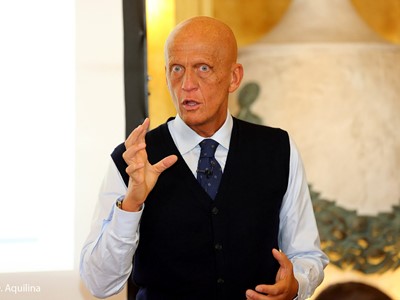
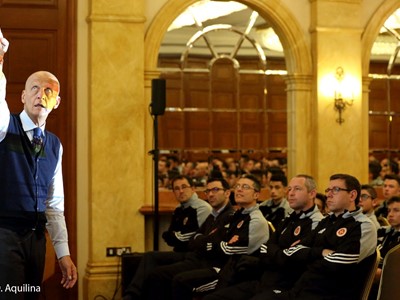
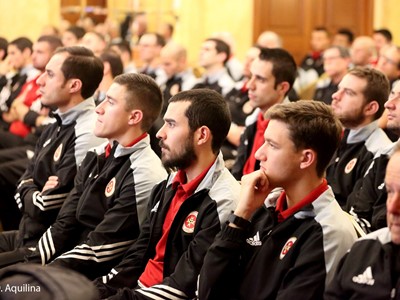
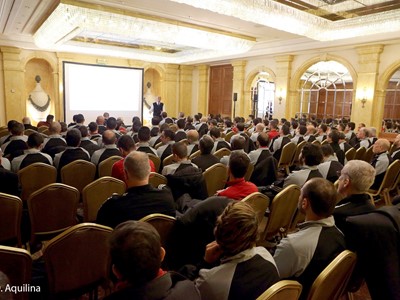
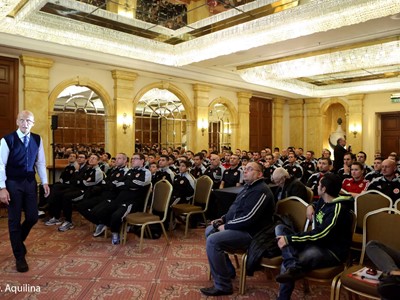
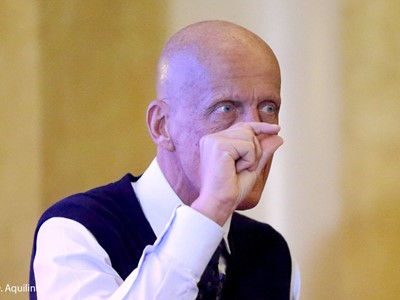
For the first time, Maltese officials and referee observers had the opportunity to meet Pierluigi Collina, the UEFA Chief Refereeing Officer and also newly-appointed Chairman of FIFA Referees’ Committee.
Kevin Azzopardi, the MFA Director of Refereeing, opened the meeting, held at the Hilton Portomaso in St Julian's, by thanking Mr Collina for accepting the Refereeing Department’s invitation despite not being in Malta on official football refereeing duties. Malta FA General Secretary Dr Angelo Chetcuti conveyed the Association’s appreciation at Mr Collina’s presence – a high-profile personality and mentor in refereeing circles – and congratulated him on his new FIFA role. Mr Collina said he was pleased to share his knowledge and experience with the Maltese match officials at a very well-attended meeting and explained that he chose Modern Refereeing Preparation as the subject of his talk as "the main ingredients for becoming a top referee are found in the formula talent+ working hard = success". In his presentation, enhanced with dvd clips from top UEFA matches and UEFA statistical data on referees’ performances, Mr Collina stressed that refereeing is not a question of being lucky or unlucky but it is largely based on match preparation which today centres on four pillars: Fitness: Training for the match (not for the fitness test) injury prevention and working hard for a good appearance (physical condition). Knowledge of the Laws of the Game: the aim is always to improve and learn from mistakes Information about the match to be refereed: the teams’ system of play (positional, direct or counter-attack); their objectives, tactics at set-pieces, zonal or man-to-man marking; goalkeeper’s distribution of the ball; long throw-ins inside penalty area; and match analysis (consulting UEFA web platform). Teamwork: the referee, as the captain of the refereeing team (and getting the best out of the latter members’ contribution), communication (organised, sharp, fast and clear); and the match itself – before (self-confidence), during (forgetting any mistake and keep looking forward), and after (finding the reason for and learn from any mistake). Mr Collina ended his highly interesting lecture by emphasising that referees have the responsibility to take decisions and need the courage to do so at all times. Notwithstanding his very tight schedule, Mr Collina found time to take some questions from the participants.